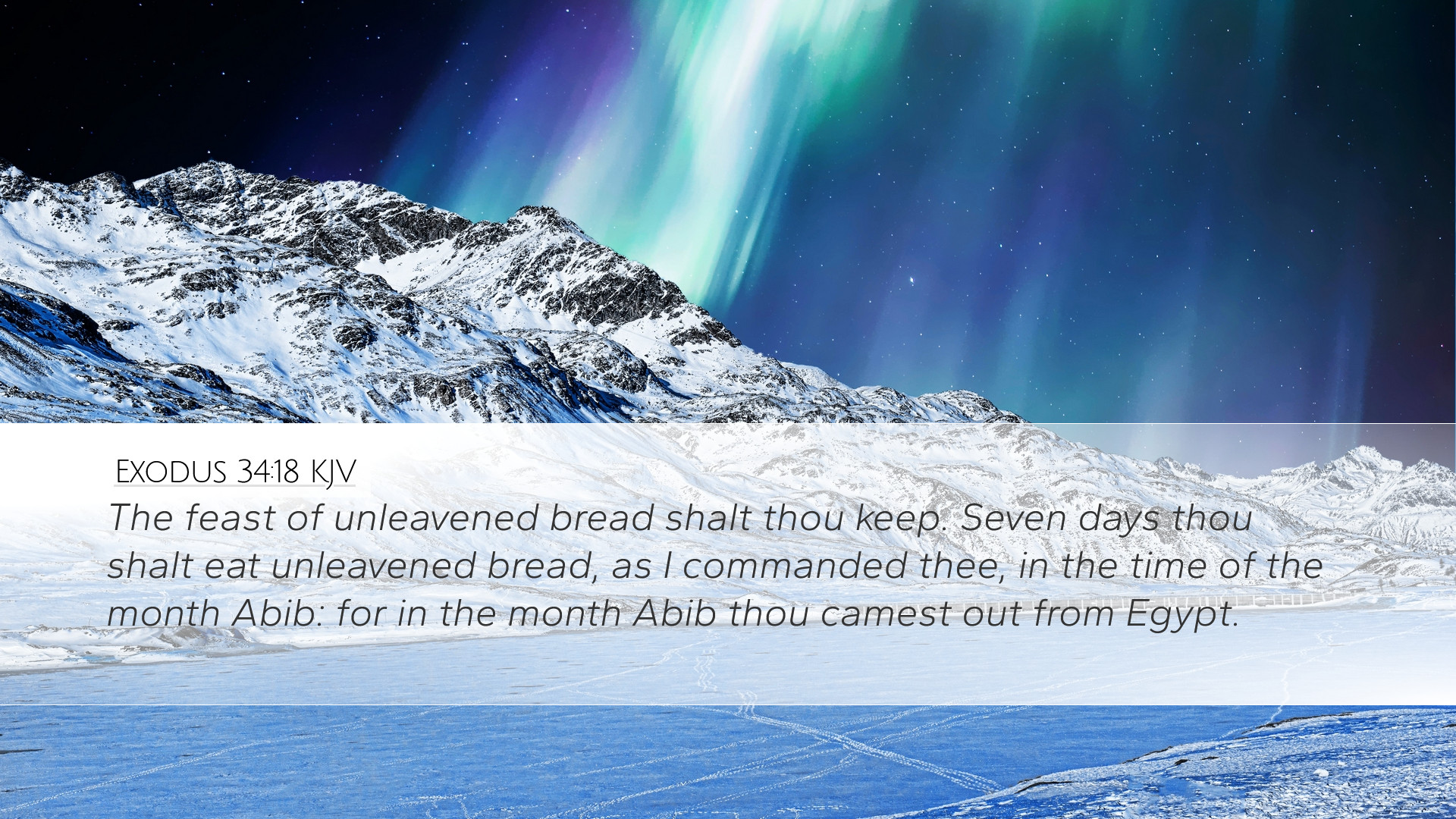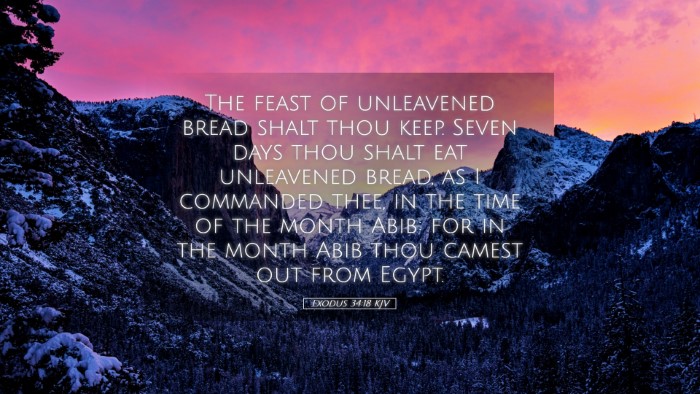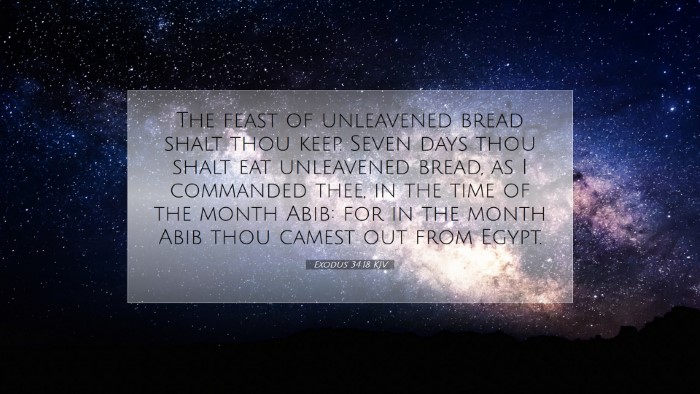Commentary on Exodus 34:18
Exodus 34:18 states:
"Thou shalt keep the feast of unleavened bread: seven days thou shalt eat unleavened bread, as I commanded thee, in the time appointed of the month Abib; for in the month Abib thou camest out from Egypt."
Introduction
This verse is part of God’s instructions to the Israelites concerning the observance of religious festivals that commemorate significant events in their history, particularly the deliverance from Egypt. The emphasis here is on the observance of the Feast of Unleavened Bread, which carries profound theological significance and practical application for both the Old Testament community and Christians today.
Theological Significance
In this command, God recalls the critical moment of Israel's liberation from slavery in Egypt. Albert Barnes remarks that the Feast of Unleavened Bread is not merely an act of remembrance but a call to the people to recreate the experience of their forefathers—a reminder of their exodus, which was marked by haste and divine intervention.
The Meaning of Unleavened Bread
Leaven, often representing sin and corruption in biblical texts, serves as a stark contrast to the unleavened bread, which symbolizes purity and holiness. Matthew Henry reflects on this symbolism, emphasizing that the removal of leaven signifies the need for holiness in the lives of God's people. The Feast of Unleavened Bread thus becomes an embodiment of the call to live a life free from the corruption of sin.
Covenant and Community
This command establishes a communal aspect of worship. As Adam Clarke comments, the Israelites were to come together as a community to observe the feast. The repeated emphasis on communal celebration suggests that maintaining covenant identity involved collective memory and mutual accountability. The act of eating unleavened bread together reinforces their shared history and their relationship with God.
Celebration and Remembrance
Clarke further notes that the structure of the feast—lasting for seven days—underscores the importance of remembrance. The continual observance of both the Passover and the Feast of Unleavened Bread places the community in a perpetual state of reflection regarding God’s redemptive actions. This rhythm of remembrance serves twofold: it preserves the history and enlivens the faith of the present generation.
Historical Context
The context of Exodus 34 is significant. The Israelites had just renewed their covenant with God after the incident of the golden calf (Exodus 32-33). In this moment of renewal, God reestablishes the terms of their relationship, emphasizing obedience through the observance of rituals. Barnes points out that these feasts are not arbitrary, but are integral to maintaining fidelity to Yahweh, contrasting the Israelite identity with that of the surrounding pagan nations.
Application for Modern Readers
The lessons from Exodus 34:18 are manifold and resonate profoundly today:
- Call to Holiness: Believers are reminded through the symbolism of unleavened bread to strive for purity in their lives, aligning with the New Testament call to be a holy people.
- Communal Worship: Just as the Israelites gathered to commemorate their deliverance, the Christian community is called to gather regularly to celebrate the ultimate deliverance through Christ.
- Memory as a Spiritual Discipline: The importance of retaining the history of God’s actions in one's life cannot be overstated. Regular remembrance through ceremonies, personal reflection, and communal retelling serves to strengthen faith.
- Obedience to God's Commands: The insistence on observing these feasts reflects the broader theological principle of obedience, which is foundational to the covenant relationship.
Conclusion
Exodus 34:18 is a rich tapestry of historical, cultural, and theological threads interwoven to reinforce God's expectations of His people. It serves as a powerful reminder of the need for holiness, communal memory, and obedience. Each element of this ancient feast carries significant meaning that speaks not only to the Israelites but also to the church today, inviting all towards a deeper engagement with God’s redemptive history and a commitment to living out their call as His people.


